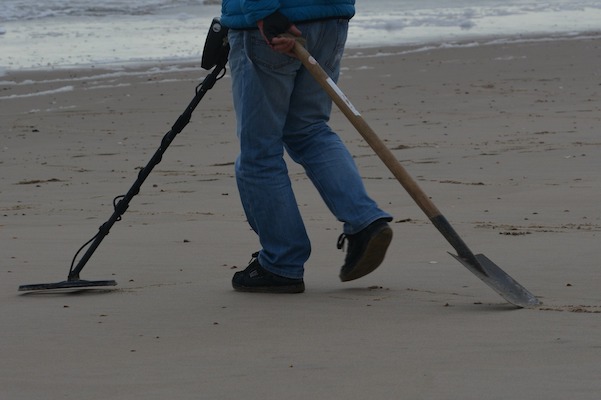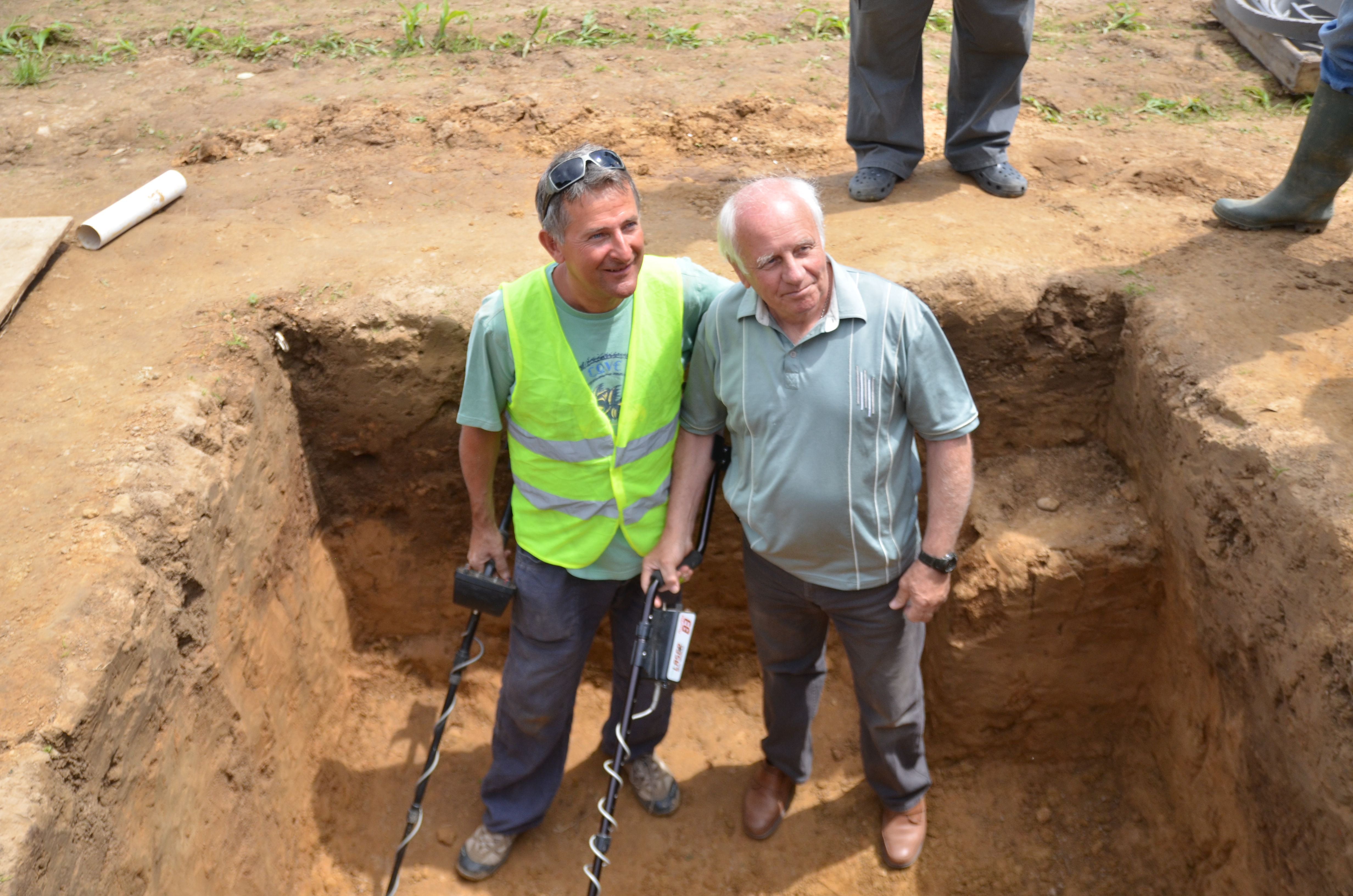


Work is taking place to update Jersey's treasure laws before the end of this year, as the UK Government announces changes to the legal definition of treasure so that more new discoveries can go on public display.
A Heritage and Antiquities Working Group was established in Jersey last year, with a primary focus on objects of particular archaeological or historical significance.
This group has been working on the enabling legislation for the island's updated treasure law, and the next step is developing the subordinate legislation and an accompanying Code of Practice.
The Jersey Government confirmed that the working group are aware of the recent UK legislative changes and are currently considering this in the enabling legislation.
The local group are also investigating how other jurisdictions manage finds, and it is hoped that their work will be completed by the end of the year.

Pictured: Recent interest in archaeological activity has increased through a combination of amateur metal-detecting, visiting archaeological teams, and developer-funded archaeology.
Dr Hervé Duval-Gatignol, Field Archaeologist at Société Jersiaise said: "From a personal point of view, and as a protohistorian, I am glad that the law in the UK will now allow the protection of more artefacts by considering a wider spectrum of discoveries. By doing so, it means that the heritage value overcomes a pecuniary aspect.
"A cast bronze figure, engraved stones, ancient bronze spear head, glass beads... Jersey holds all kinds of artefacts that provide knowledge about the heritage of our island which I already consider as treasures even if they are not made of precious metal. I believe that the value is related to the capacity for an object to make us learn about the human societies that preceded us. Many colleagues would share this view, I suppose."
He added: "As a member of the Société Jersiaise, my role is to preserve prehistorical and historical sites in Jersey, studying them and sharing this knowledge with the public. It all starts with artefacts and our ability to record it the proper way so we're sure that the information is registered and will be known for the future generations.
"However, my judgment and position must not overcome the interest of the islanders and I strongly believe that it is for them (for us, all together) to decide. I know for sure that many of them would consider our dolmen and megaliths as treasures, even if they are not covered by precious metal."

Pictured: "Many of them would consider our dolmen and megaliths as treasures, even if they are not covered by precious metal."
The development of the Jersey's treasure law started in 2020 following a rise in amateur metal detecting, with then Minister for Economic Development, Tourism, Sport and Culture, Senator Lyndon Farnham, signing a Ministerial Decision in 2020 to bring forward a Heritage and Antiquities Law to “provide clarity on heritage matters”.
Work on drafting the legislation was still underway at the end of 2021 when ‘A Heritage Strategy for Jersey’ - a document aiming to provide a 20-year vision for the heritage sector - highlighted Jersey’s failure to meet some international standards for heritage conservation and management.
Currently, it is not a requirement in Jersey to report the discovery of metals apart from silver and gold, or finds made of different materials such as stone, bone or ceramics, despite the significance they may have.
As the Heritage Strategy notes, the discovery of stone plaquettes from Les Varines shows the “wealth of information” that can come as a consequence of responsible reporting of a find which was not ‘treasure’.

Pictured: The discovery of Le Catillon Celtic Coin Hoard in 2012 highlighted the problems with Jersey's current situation, where there is no law to govern the legal position for finders, landowners, heritage bodies, the Crown, or the Government.
In the UK, a similar surge in the number of amateur detectorists unearthing historical artefacts prompted the Government to change the legal definition of treasure so that more artefacts can go on public display and help deepen people's understanding of the country's history.
Under the current definition, newly discovered artefacts can only be legally classified as treasure if they are more than 300 years old and made of precious metal or part of a collection of valuable objects or artefacts.
However, the new criteria will apply to the most exceptional finds over 200 years old – regardless of the type of metal of which they are made – so long as they provide an important insight into the country’s heritage.
Discoveries of treasure meeting these new criteria will be assessed by a coroner and will go through a formal process in which they can be acquired by a museum and go on display to the public.
Comments
Comments on this story express the views of the commentator only, not Bailiwick Publishing. We are unable to guarantee the accuracy of any of those comments.